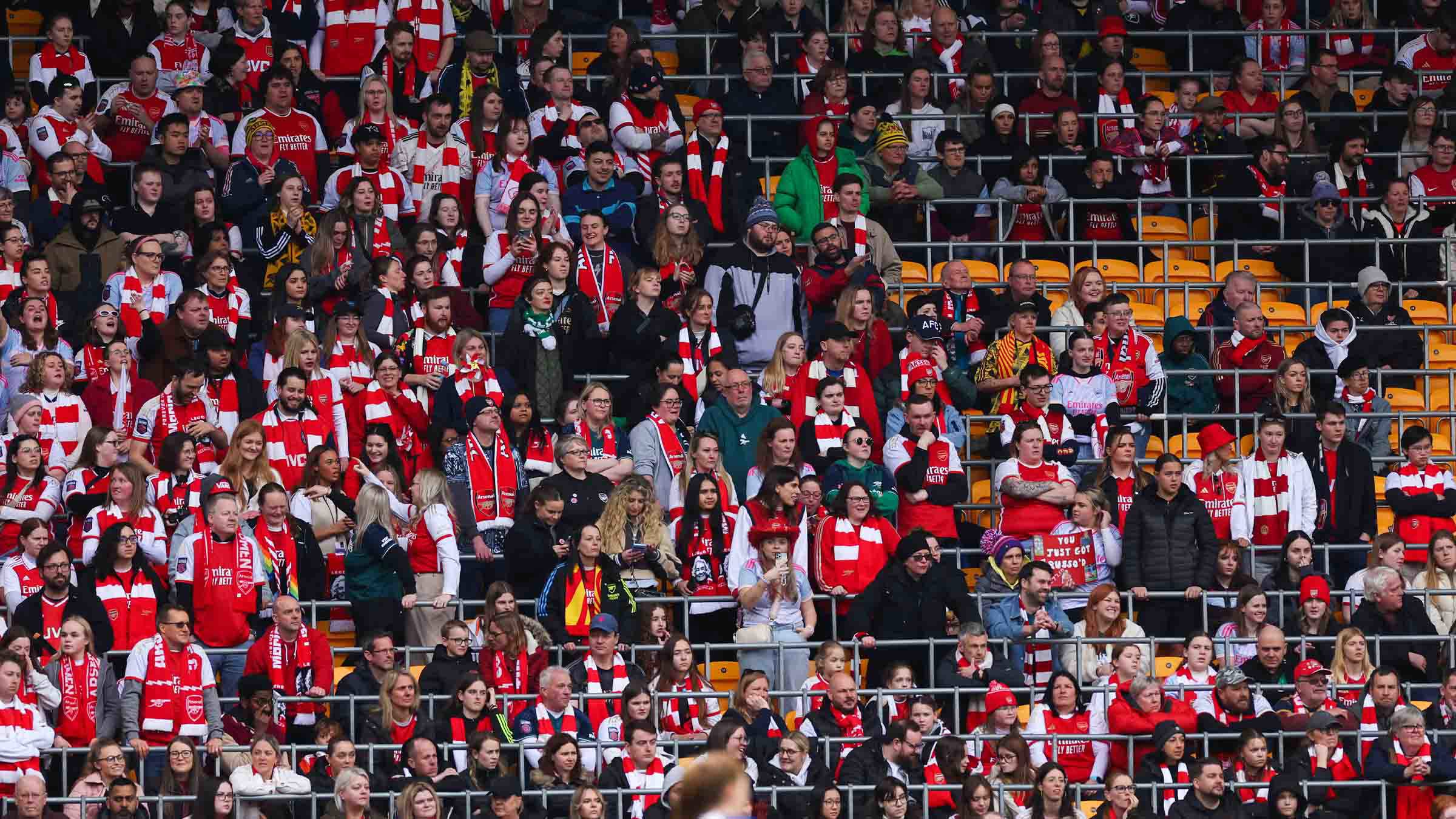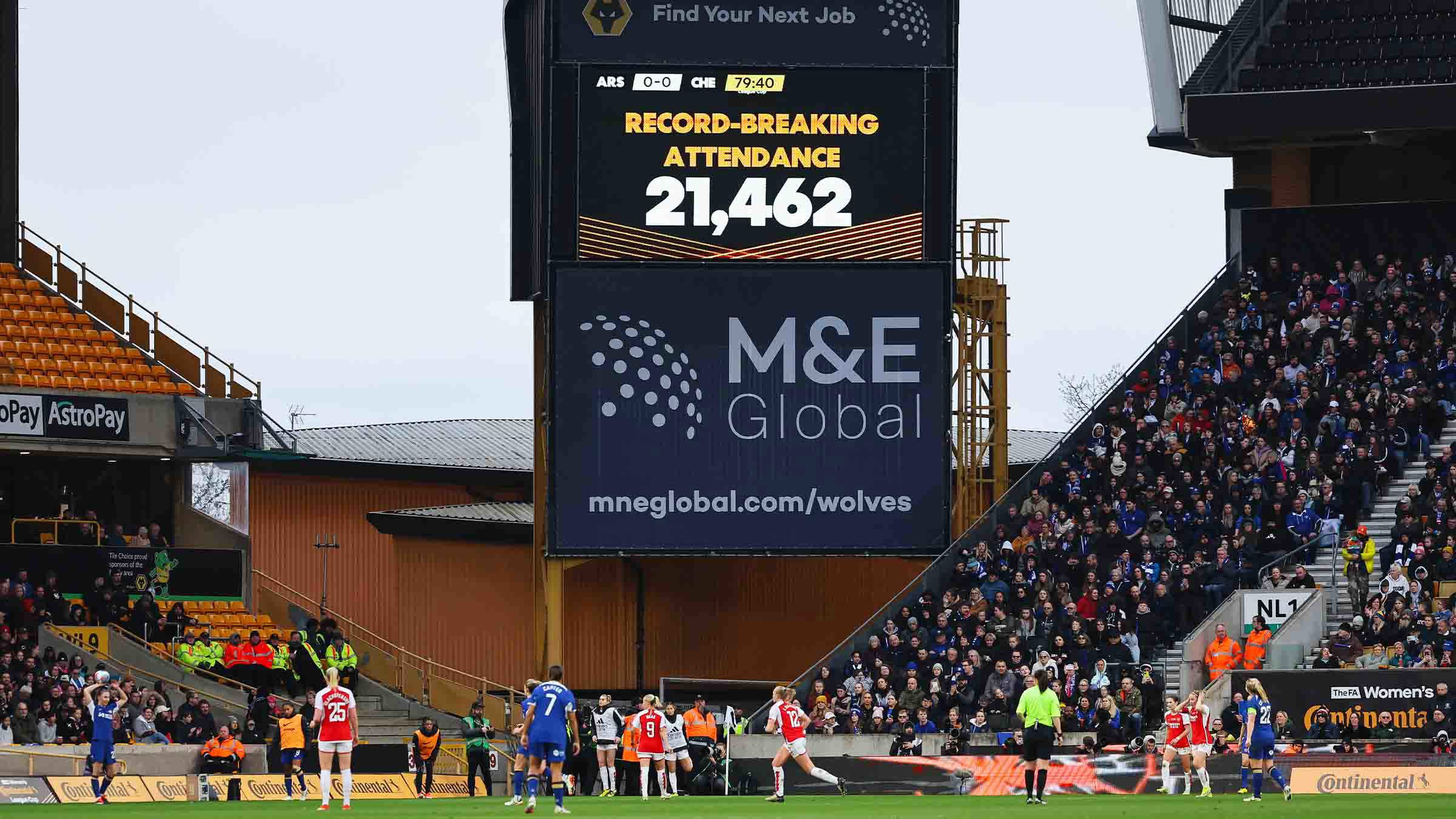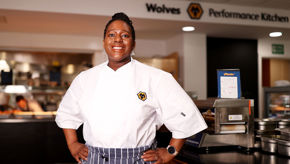This year, West Midlands Police made a significant move towards ridding football of misogyny with the appointment of PC Catherine Clinton, who handles offences specifically against women and girls.
Clinton’s appointment in January came after big strides forward made by West Midlands Police’s PC Stuart Ward, the country’s first police officer in a dedicated football hate crime role, which began in 2021.
Now, Clinton will focus on misogyny within football stadiums, including abuse directed at supporters, officials, players, staff, police officers and broadcasters, with Wolves one of six clubs she’ll work with in the region.
A survey carried out in 2023 by Her Game Too found that 91.9% of the respondent women have seen sexist abuse towards women in football, with 63% having experienced it themselves, and 58.4% of those women had experience it whilst attending football grounds.
While Clinton has worked Molineux matchdays for a number of years in her previous roles within the Police, she recently attended the Women’s Continental Cup final between Arsenal and Chelsea in her new role.
That afternoon, Clinton and a number of officers were on hand to provide advice to women and girls, raising awareness of issues women can find uncomfortable at football matches.
The sold-out fixture hosted at Molineux featured a higher than average supporter presence from women and girls including families and young people, and now Clinton speaks to wolves.co.uk about her new role and how, as a collective, we’ll work towards removing misogyny from the sport.
…
Cat, can we start with you telling us about your role at West Midlands Police, which is a first of its kind?
There was a lot of positive feedback from employing PC Stu Ward, our hate crime officer. Hate crime issues had gone up, but it was a positive in a way, as it showed people were reporting them, rather than accepting the behaviour. There were incidents last year involving a female referee and a presenter, who both received misogynistic abuse at games. We’ve also had female fans attending the men’s games receiving abuse, likewise police officers at games. So, with all of that in mind, and with statistics suggesting misogyny is on the rise, the role was created. Violence against women and girls is a national priority for the police, not just in the West Midlands or football, but through football we can make a positive difference, on a big platform.
You began the role in January, but can you provide some background on your career until that point?
I spent ten years on the response team at Brierley Hill and five years on the neighbouring taskforce. Alongside the taskforce, I did football spotting at Wolves for the previous two seasons. Over the years, I have worked football matches, but on a disorder van, rather than having the involvement I do now.
The key word is misogyny and how important is it to define misogyny and make clear what is and isn’t an illegal offence?
There can be confusion between misogyny and sexism. Sexism is prejudice towards someone’s gender or sex, the fundamental nature of men and/or women, but misogyny is a hatred, prejudice or contempt towards women, where women are seen on a lower scale.
Misogyny isn’t a hate crime currently, but it’s still considered an offence, so we can arrest people under the public order act. The Public Order Act primarily covers offences around matchdays, shouting abuse at officials, fans and players. There are also offences under the Malicious Communications Act, which helps to target online abuse. Targeting of players, officials or fans can also be dealt with through offences under the Harassment Act, which includes stalking. They’re all arrestable offences and we’re trying to push on convictions. There’s been a number of people in the West Midlands arrested for misogynistic abuse at football matches and the cases are in the process of being finalised. We’re running education programmes tailored around misogyny but people aren’t as aware as they should be about what is misogyny.

You’ll also work with Aston Villa, Birmingham City, West Bromwich Albion, Walsall and Coventry City, but how much have you integrated yourself at Wolves until now?
For me, Wolves are a family club – it’s a community club – and some of the initiatives we’re going to start implementing hopefully will be piloted at Wolves for that reason. Wolves are trying to get ahead of the game, trying to make it inclusive for all, which is our overall aim. There’s a focus on the women’s game, but we’re also trying to help more women and girls attend and feel safe at the men’s games. I was at the Continental Tyres League Cup final at Molineux, and it was a great atmosphere. You could see there was more females attending that game than a men’s game, but we want them to feel safe at all matches.
Should supporters want to report an incident at Wolves, how should they do so?
At Wolves, there’s the ‘Not in our Pack’ reporting text line (07723 479887 – start the message with WOLVES), which works well for reporting hate crime offences such as homophobia and racism, so that would be number one on a matchday, alongside approaching the nearest steward or police at the ground. If the incident is player related, the officials pass it on to us. Supporters can contact the football office directing and speak to me by calling 101 or 999 in an emergency.
How much is ridding football of misogyny an effort from all involved inside stadiums on a matchday?
I’m really conscious about not making it an argument of men against women, because that can automatically shut people off. It’s about reaching out to men as allies. There are a lot of initiatives other forces have implemented, including the White Ribbon campaign which Wolves were involved in back in November, asking men to support women and be allies, calling out other men for crossing the line. It’s about working together to reach the overall objective.

What are your short and long-term plans to rid the game of misogyny as much as we can?
Initially, it’s trying to raise awareness and educating people that it isn’t acceptable. I’m doing that by going to grassroots clubs, schools, universities and men’s and women’s clubs. We are here, we will take it seriously and will act on complaints or concerns. I’ve found that people are unaware that there are offences involved. People are suffering when there’s something we can do. Long-term, I’ll work with clubs in a lot more detail. Once we have some positive outcomes from cases, they can be publicised to encourage people to report such offences.
Finally, how much have times changed during your career, and how much work still needs to be done?
I’ve been working in football for 15 years and you’d accept that people would act inappropriately to you and accept that was part of football. But in recent years West Midlands Police have tried to get a grasp of that in our pre-match briefings. All officers are reminded about hate crime and misogyny, and that it’s not acceptable in football. If someone can act inappropriately to someone in uniform at a game, what will they do to a vulnerable person in the ground? We’re trying to lead by example and if attitudes are displayed towards officers, we’re making it clear that it’s unacceptable, so there aren’t other victims.
For advice or support on reporting an incident, contact fanservices@wolves.co.uk.
Other useful organisations:
- Her Game Too: Report | Her Game Too
- Remedi: What We Do: Hate Crime Victim Services | Remedi (remediuk.org)
- Stop Hate UK: Game Over for Discrimination in Women’s Football - Stop Hate UK
Supporters who attend Wolves home matchdays by themselves, or who would like to attend Molineux matches but might feel vulnerable as a lone fan, are being invited to join the fan-led Molineux Connects group.


